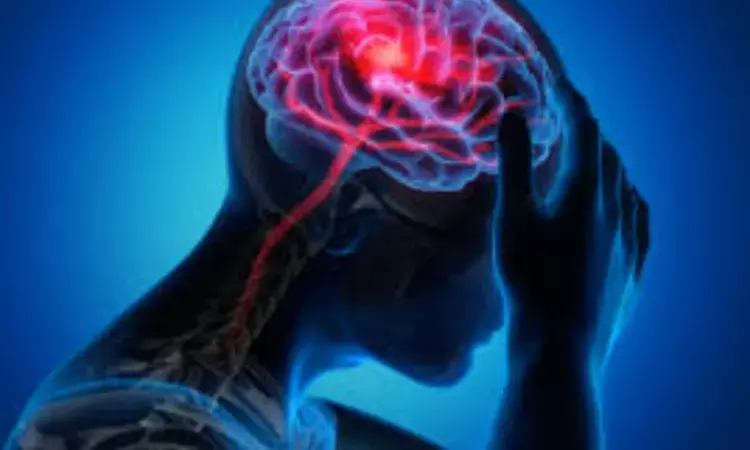- Home
- Medical news & Guidelines
- Anesthesiology
- Cardiology and CTVS
- Critical Care
- Dentistry
- Dermatology
- Diabetes and Endocrinology
- ENT
- Gastroenterology
- Medicine
- Nephrology
- Neurology
- Obstretics-Gynaecology
- Oncology
- Ophthalmology
- Orthopaedics
- Pediatrics-Neonatology
- Psychiatry
- Pulmonology
- Radiology
- Surgery
- Urology
- Laboratory Medicine
- Diet
- Nursing
- Paramedical
- Physiotherapy
- Health news
- Fact Check
- Bone Health Fact Check
- Brain Health Fact Check
- Cancer Related Fact Check
- Child Care Fact Check
- Dental and oral health fact check
- Diabetes and metabolic health fact check
- Diet and Nutrition Fact Check
- Eye and ENT Care Fact Check
- Fitness fact check
- Gut health fact check
- Heart health fact check
- Kidney health fact check
- Medical education fact check
- Men's health fact check
- Respiratory fact check
- Skin and hair care fact check
- Vaccine and Immunization fact check
- Women's health fact check
- AYUSH
- State News
- Andaman and Nicobar Islands
- Andhra Pradesh
- Arunachal Pradesh
- Assam
- Bihar
- Chandigarh
- Chattisgarh
- Dadra and Nagar Haveli
- Daman and Diu
- Delhi
- Goa
- Gujarat
- Haryana
- Himachal Pradesh
- Jammu & Kashmir
- Jharkhand
- Karnataka
- Kerala
- Ladakh
- Lakshadweep
- Madhya Pradesh
- Maharashtra
- Manipur
- Meghalaya
- Mizoram
- Nagaland
- Odisha
- Puducherry
- Punjab
- Rajasthan
- Sikkim
- Tamil Nadu
- Telangana
- Tripura
- Uttar Pradesh
- Uttrakhand
- West Bengal
- Medical Education
- Industry
Novel TLR4 Antagonist ApTOLL Shows Promising Results In Combination Therapy For Ischemic Stroke

A recent study published in JAMA Neurology has revealed the potential of a new therapeutic approach for treating acute ischemic stroke. The study, conducted across multiple sites in Spain and France, investigated the safety and efficacy of a TLR4 antagonist called ApTOLL when used in combination with endovascular treatment (EVT).
Ischemic stroke, caused by a blockage in a blood vessel supplying the brain, is a leading cause of death and disability worldwide. Time is of the essence in stroke treatment, as the sooner interventions are initiated, the better the chances of recovery. Current treatments involve the restoration of blood flow to the affected area through EVT and, if applicable, intravenous thrombolysis.
The phase 1b/2a clinical trial, a double-blind, randomized, placebo-controlled study conducted by Macarena Hernández-Jiménez and team of researchers, enrolled patients aged 18 to 90 years who had experienced an ischemic stroke due to large vessel occlusion. Participants were required to present within 6 hours after the onset of stroke symptoms and meet specific inclusion criteria. In total, 4174 patients underwent EVT during the study period.
The trial consisted of two phases. In phase 1b, different doses of ApTOLL (0.025, 0.05, 0.1, or 0.2 mg/kg) or placebo were administered to 32 patients, with a focus on evaluating safety. Phase 2a further investigated two selected doses, 0.05 and 0.2 mg/kg, in 119 patients randomized to receive ApTOLL or placebo in combination with EVT and, if needed, intravenous thrombolysis.
The primary objective of the study was to assess the safety of ApTOLL based on specific outcomes, including death, symptomatic intracranial haemorrhage, malignant stroke, and recurrent stroke. Secondary efficacy measures included final infarct volume, neurological status assessed by the NIHSS score, and functional disability evaluated using the modified
Rankin Scale (mRS) score at 90 days.
● Results from the trial showed that the administration of ApTOLL at a dose of 0.2 mg/kg within 6 hours of stroke onset, alongside EVT, was well-tolerated and demonstrated a potential clinical benefit.
● Compared to the placebo group, patients receiving the higher dose of ApTOLL experienced a lower NIHSS score at 72 hours, indicating improved neurological status.
● They exhibited smaller final infarct volumes and lower levels of disability at the 90-day mark.
● The primary endpoint analysis revealed that the incidence of adverse events, including death, symptomatic intracranial haemorrhage, malignant stroke, and recurrent stroke, was reduced in patients treated with ApTOLL, 0.2 mg/kg, compared to the placebo group.
These preliminary findings offer promising insights into the potential of ApTOLL as an adjunctive therapy for acute ischemic stroke. However, larger pivotal trials are necessary to confirm and validate these results.
These promising results from the ApTOLL clinical trial represent a significant advancement in the field of stroke treatment. If subsequent studies validate these findings, ApTOLL could potentially revolutionise the management of acute ischemic stroke and contribute to improved patient outcomes worldwide.
Reference:
Hernández-Jiménez, M., Abad-Santos, F., Cotgreave, I., Gallego, J., Jilma, B., Flores, A., Jovin, T. G., Vivancos, J., Hernández-Pérez, M., Molina, C. A., Montaner, J., Casariego, J., Dalsgaard, M., Liebeskind, D. S., Cobo, E., Castellanos, M., Portela, P. C., Masjuán, J., Moniche, F., … Ribo, M. (2023). Safety and efficacy of ApTOLL in patients with ischemic stroke undergoing endovascular treatment: A phase 1/2 randomized clinical trial. JAMA Neurology. https://doi.org/10.1001/jamaneurol.2023.1660.
Dr Kamal Kant Kohli-MBBS, DTCD- a chest specialist with more than 30 years of practice and a flair for writing clinical articles, Dr Kamal Kant Kohli joined Medical Dialogues as a Chief Editor of Medical News. Besides writing articles, as an editor, he proofreads and verifies all the medical content published on Medical Dialogues including those coming from journals, studies,medical conferences,guidelines etc. Email: drkohli@medicaldialogues.in. Contact no. 011-43720751


